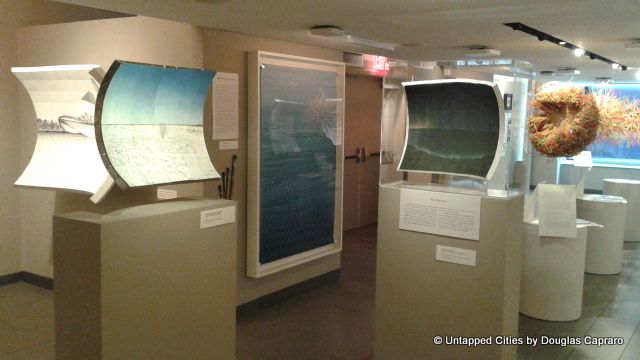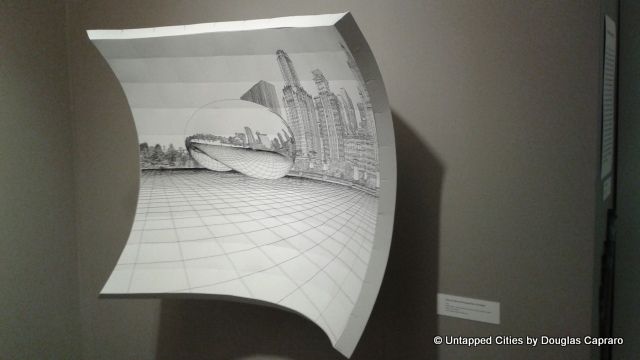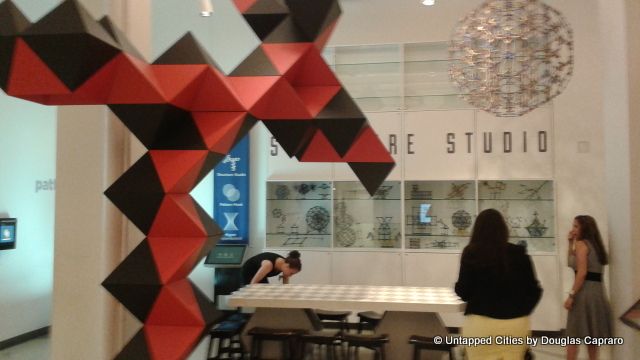100th Anniversary Great Nave Tour at the Cathedral of St. John the Divine
Celebrate the 1925 construction of the stunning nave inside the world's largest Gothic cathedral!



At first glance, a giant concave canvas sketch of Chicago’s Bean sculpture at NYC’s Museum of Mathematics (cleverly nicknamed “MoMath”) seems to have nothing to do with math. Yet from now until July 21, Trevor and Ryan Oakes’ fascinating new exhibit “Compounding Visions” manages to explore the intricacies of human perception through algorithms and numbers. These unconventional drawings are part of the nation’s only math museum’s continuing goal
to illuminate “the patterns and structures all around us” through math.MoMath, located just north of Madison Square Park on 26th Street, is also home to many other enlightening exhibits year-round. According to its website, the museum originally began as a reaction to the closing of a small mathematics museum in Long Island, the Goudreau Museum, in 2006. The closing inspired a conglomerate of like-minded groups to combine their resources and outdo the Goudreau in both size and scope. MoMath turned out to be the only museum of mathematics in the entire country and has since received an official charter from the New York State Department of Education, led math tours in various U.S. cities and raised over $22 million to date.
Under the guidance of museum founder Glen Whitney, MoMath also features exhibits specifically designed for children with the aim of creating fun and fascinating ways to explore math, much like Flushing’s Hall of Science does with science. Almost everything is interactive and exhibits run the gamut from a touch-based sound creation gizmo called “Harmony of the Spheres” designed by Princeton music theorist Dmitri Tymoczko, to an electronic painting interface called “Polypaint.”
In “Compounding Visions,” the unique shape of the Oakes’ canvas is a unique feature of their pieces. The two 32-year-old twins and Cooper Union grads were keen to avoid the tendencies of Renaissance masters to distort an image by displaying it on a flat canvas. Instead, they created a process of duplicating their surroundings that is more akin to genuine human perception. This was done using an ultra-low tech method involving a concave easel that allows them to cross their eyes and trace images on a spherical surface as the image drifts into their vision. Although it may sound rather technical on paper, the results, which can be seen any time between 10:00 a.m. and 5:00 p.m. at MoMath’s Composite gallery, are stunning to say the least.

In addition to an insightful video showing the process behind the creation of their concave drawings, the twins have also prepared a series of sculptures made out of pipe cleaners. These twisted creations are all based on specific “algorithmic recipes” that display the sensitive mathematical relation and repetition of the pipes. Along with several other variations of similarly math-fueled fine art projects, there are plenty of in-depth descriptions of each display.

Find out more about planning a visit to MoMath by visiting its website here.
Subscribe to our newsletter